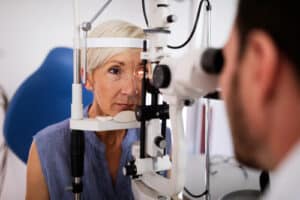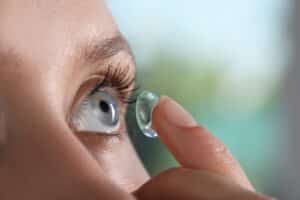The eyes are incredible organs that are vital to your everyday experiences of the world around you. Yet, in our busy lives, many people overlook the significance of caring for their vision until faced with a problem.
There are numerous ways to ensure that you are protecting your eyes and vision. Keep reading to find out nine things your eye doctor wants you to know!
1. Regular Eye Exams Are Essential
When was the last time you had an eye exam? If you can’t remember your last visit to the eye doctor, you’re probably overdue for one.

Many serious conditions that affect the eyes, such as glaucoma, do not show obvious signs or symptoms at first. Timely detection and treatment of certain eye conditions can prevent vision loss, so it’s important to remember to visit your eye doctor regularly.
2. Protect Your Eyes From the Sun
Forgetting your sunglasses at home can be more than uncomfortable. Sun exposure can have significant consequences on your ocular health.
Sunlight contains ultraviolet (UV) radiation. Exposure to this can increase your risk of developing a range of eye diseases, including cataracts and cancer.
The front of your eye can even get sunburnt. Sunglasses are your best defense against sun damage to your eyes.
There are many types of sunglasses, and we’re not just talking about style. Different pairs block different levels of radiation.
To fully protect your eyes, sunglasses block at least ninety-nine percent of UVA and UVB radiation.
3. Digital Eye Strain Is Real
If your eyes ever hurt after an extended period of looking at a screen, you’re far from alone. Many people experience digital eye strain on a regular basis, especially those who work on a computer all day. 
Digital eye strain can result from all kinds of screens, whether a tablet, TV, or anything else, causing eye strain, headache, dry eyes, and more.
To reduce your chances of digital eye strain, give your eyes a break.
Every twenty minutes, look away from the screen for at least twenty seconds. You can also wear lenses that are specifically tinted to offset the effects of blue light emitted by screens.
4. Proper Nutrition Promotes Eye Health
Just like every other part of your body, your eyes must receive the proper nutrients in order to function properly. Your diet directly impacts your eye health and can even help lower your chances of developing certain conditions.
Vitamin C, vitamin E, zinc, lutein, and zeaxanthin all promote eye health. Citrus fruits, almonds, legumes, and leafy green vegetables are all good sources. By maintaining a diet full of nutrient-rich foods, you can help support your eye health.
5. Smoking Harms Your Eyes
Today, most people understand that smoking is bad for your health. What many people do not know is that it can actually be damaging to your eyes.
Smoking puts you at a higher risk of developing various eye conditions. It can also worsen existing conditions, such as macular degeneration and dry eye.
6. Contact Lens Hygiene Is Crucial
Unfortunately, we’ve seen our fair share of patients complaining of symptoms that ultimately can be traced back to poor contact lens hygiene. The importance of properly cleaning and storing your contacts cannot be overstated.

To disinfect your contacts, follow the instructions that come with your contact solution. Keep your case clean as well, replacing it as necessary.
Don’t sleep in your contacts or wear them for longer than instructed.
7. Be Mindful of Eye Safety
Whether you’re completing a project around the house or encountering eye hazards at work, keep your eyes protected with goggles. They stop dirt, dust, and other substances from reaching your eyes.

Safety goggles also protect your eyes from any objects that could potentially hit them.
8. Look Out For Changes in Vision
Vision changes are a part of life. While they occur most frequently in your early and later years, they can happen anytime. Sometimes, they are simply an indicator that you need a stronger prescription.
Other times, they are a sign of a potentially serious condition. Pay attention to any changes you may be experiencing in your vision.
When you notice a change, even if it seems insignificant, it’s always a good idea to contact your eye doctor. They can identify the cause and make sure your eyes are healthy.
9. Know Your Family’s Eye Health History
Many eye conditions have a genetic component. This means that you can be more likely to develop a particular condition if others in your family have also had it.
Talk to your family about their eye health, and when you meet with your eye doctor, inform them of any eye problems occurring in your family. By doing so, you provide them with valuable information to monitor and address specific concerns effectively.
Is it time for a visit with your eye doctor? Schedule an appointment at Jacksonville Eye Center in Jacksonville, FL, today!

